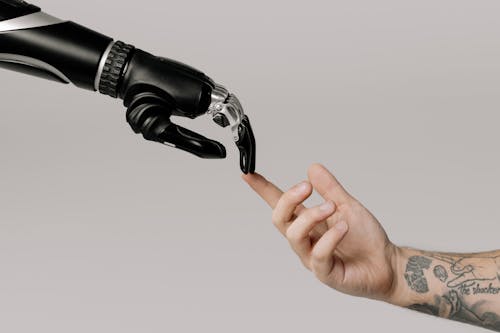Evolution of Artificial Intelligence, From a conceptual idea to change the very fabric of our lives’ pages, Artificial Intelligence has evolved. From simple algorithms in the early days of this discipline to complex neural networks today, the journey of AI has been nothing less than revolutionary. This article portrays the evolution of AI and its very deep impact on our world.
Contents
- 1 Emergence of AI: From the Roots of Theories to Detailed Practical Development Evolution of Artificial Intelligence
Emergence of AI: From the Roots of Theories to Detailed Practical Development Evolution of Artificial Intelligence
Early Ideas and Theoretical Roots: Evolution of Artificial Intelligence
The concept of artificial intelligence is rooted in ancient myths and philosophical theories and questions. The great Aristotle mused over the idea of automated reasoning that formed the foundation for AI. But it was only in the 20th century that AI came within the ambit of a scientific discipline. The British mathematician Alan Turing proposed the idea of a machine that can simulate human intelligence, which he spelled out in his famous Turing Test. This provided a theoretical ground for AI research.
Birth of Modern AI
The 1956 Dartmouth Conference marked the official birth of AI as a field of study. Sponsored by John McCarthy and his colleagues, this conference aimed at examining ways in which machines could be made to simulate “intelligent behavior.” The early research in AI focused on symbolic AI, where efforts were directed at writing programs that could manipulate symbols and solve problems by logical reasoning. While these early systems were primitive, they laid the foundation for the development to come.
Also Visit: Polaris Dawn Mission SpaceX Postponed Due to Technical Issues
The Rise of Machine Learning: From Rule-Based Systems to Data-Driven Models
Emergence of Machine Learning
Researchers working on neural networks-implicitly modeled upon the structure of the human brain-created and tested early models in the 1980s and 1990s. These were rudimentary, but showed that it was possible to train machines to learn from examples without explicit rules.
The Big Data Revolution
The 21st century saw a tectonic shift with big data. Data explosion from various sources such as the internet, social media, and sensors provided the required fuel for more advanced AI applications. The machine learning algorithms, especially deep learning methods reliant on complex neural networks with multiple layers, started to give spectacular results. These advances empowered achievements in image recognition, natural language processing, and predictive analytics.
AI in Everyday Life: Changing Industries and Amplifying Experiences
Healthcare: Revolutionizing Diagnosis and Treatment
Applications of AI in healthcare have been immense. Machine learning algorithms in applications can read medical images with high accuracy, hence helping doctors diagnose diseases at an early stage. Other uses also involve the implementation of systems powered by AI that personalize treatment options and outcomes for patients to make healthcare.
Transportation: Driving to Intelligence
Self-driving cars and intelligent transportation systems probably represent the most visible use of AI in everyday life. Autonomous cars apply AI to roadmaps, interpretation of sensors, and decision-making within fractions of a second. Although fully autonomous driving is yet under development, AI has enhanced traffic management and improved safety features in conventional cars.
Finance: Enhancement of Security and Efficiency
In the financial sector, the use of AI ranges from fraud detection to algorithmic trading. These advancements have been making financial transactions efficient and secure.
Conclusion
Evolution of Artificial Intelligence, From a simple theoretical concept to life-changing technologies, AI has evolved marvelously. The farther AI has moved, the deeper it will reach into more and more fields with its share of promises and problems. When we truly understand its history and present applications, we appreciate better how AI shapes our world and envision a future wherein intelligent systems will work in harmony with humanity.
